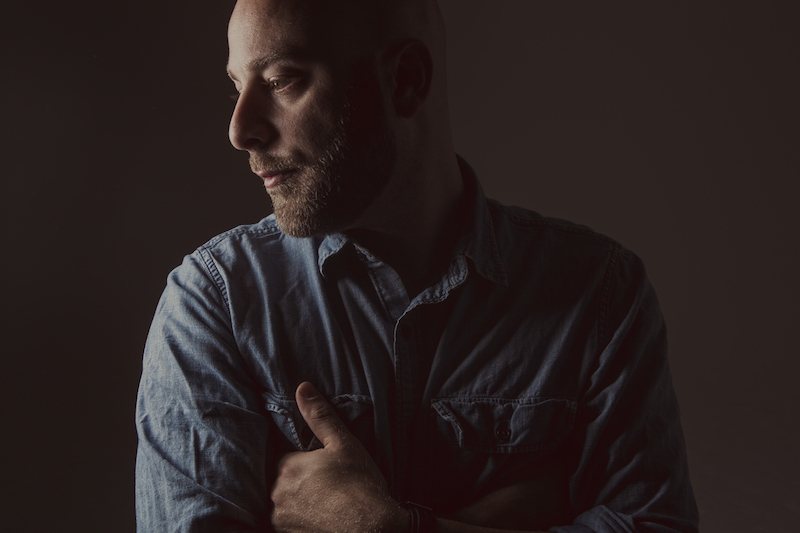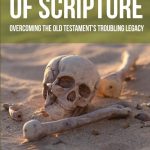Many people today—including Christians—don’t know how to doubt properly. Don’t get me wrong. I’m not advocating a life of perpetual, pervasive, and potentially corrosive doubt, as some do. That would be wrongheaded. Doubting isn’t a duty to be observed; it’s a concern to be addressed. Promoting thoughtfulness and critical thinking skills is one thing. Celebrating a life of doubt is another.
God regularly commands his people not to fear but to trust him, to have confidence that his promises are “Yes” and “Amen” in the crucified, resurrected, ascended, and returning Messiah (2 Cor. 1:20). Yet each of us, to varying degrees, will face doubts. This is why Jude exhorts God’s people to “have mercy on those who are doubting” (Jude 22). In this spirit, the Christian tradition has emphasized certain spiritual works of mercy; alongside instructing the ignorant and comforting the sorrowful is counseling the doubtful. Even John the Baptist had his doubts about the nature of Jesus’s messiahship (Luke 7:17–23), and we could mention other biblical saints who doubted the presence or the purposes of God in the world.
When we experience doubts, we’re in holy company.
A lot of people today—including Christians—don’t know how to doubt properly.
The Christian may object: Doesn’t James denounce doubters as “double-minded” and “unstable” (Jas. 1:5–8)? Isn’t all doubting sinful? Actually, James condemns a mindset of divided loyalty between God and the world—a spiritual adultery:
Do you not know that friendship with the world is hostility toward God? . . . Cleanse your hands, you sinners; and purify your hearts, you double-minded. (Jas. 4:4, 8; cf. Matt. 6:24)
The “James doubt” is far different from the “Jude doubt.”
God doesn’t rebuke saints for honest inner struggles, questions, and emotions. Indeed, even amid our doubts and darkness we can show forth God’s presence through faithful living.
Doubt Suppression
If we’re honest, we’ll readily identify with what theologian Avery Dulles has observed: There is a “secret infidel” in every believer’s heart, a kind of internal dialogue between one’s “believing self” and “unbelieving self.” The wrong response to doubting and questioning youth is to keep them in a “Christian bubble”—or simply to dismiss their questions and exhort them to “pray harder,” “read the Bible,” or “just believe.” The right response is to teach them to doubt wisely.
Christian leaders and parents should give the young people entrusted to them ample room to grapple with doubts—to ask questions around the supper table or over a cup of coffee. The next generation should receive direction in honestly working through these questions. We should seek to sharpen their minds and strengthen their faith so they can embrace it as their own.
When we experience doubts, we’re in holy company.
Consider the example of Augustine. As a young man in North Africa, he was critical of anti-intellectual church leaders with pat “answers” to fair-minded questions. When asked about what God was doing before he made heaven and earth, these leaders would answer mockingly: “Preparing hell . . . for those prying into such deep subjects.” Augustine adopted a more honest attitude: “I would rather respond, ‘I do not know,’ concerning what I do not know rather than say something for which a man inquiring about such profound matters is laughed at while the one giving a false answer is praised.”
Mismanaging Doubt
Today a good number of people don’t know how to properly manage their doubts. Here are three such examples.
1. Knowledge as 100 Percent Certainty
Virtually no philosopher today assumes what many doubters do: that in order to believe something, we must have absolute or 100 percent certainty.
A good number of Christians blindly accept this notion: “If it’s logically possible that the Christian faith isn’t true, then it follows we can’t really know that it is true.” Scripture speaks of the confident knowledge we can have that our heavenly Father accepts us, that we have eternal life, and that we can have good reasons for our faith. And as we’ll see, we can have plenty of good and defensible reasons for following Christ.
But this absolute-certainty demand—which no one truly follows—is itself questionable: How do we know with 100 percent certainty that knowledge requires 100 percent certainty? It’s a phony criterion that can’t sustain itself.
2. Scientific Verification Alone
Christians are often challenged to “prove that God exists.” By “prove,” many critics have scientific proof in mind. Of course, the term “proof” itself suggests something like 100 percent certainty, which, we’ve noted, can be readily dismissed.
A further problem is that this is really an appeal to scientism rather than science. While science studies the natural world with its processes and patterns, scientism is a faulty philosophy affirming that only science can yield knowledge. A more modest and appropriate view is that scientific study is one of many sources of knowledge.
Insisting that only science can give us knowledge is both arbitrary and self-contradictory. Why just science and no other source of knowledge? . . . Besides, how can one scientifically prove that all knowledge must be scientifically provable?
The Christian faith is science-friendly, and we can find supports in science—such as the universe’s beginning a finite time ago and the breathtaking fine-tuning conditions for intelligent life. But insisting that only science can give us knowledge is both arbitrary and self-contradictory. Why just science and no other source of knowledge? The mere pronouncement sola scientia—“science alone”—doesn’t make science the sole or final arbiter for all knowledge. Again, what about other sources of knowledge? Besides, how can one scientifically prove that all knowledge must be scientifically provable? Scientism—not science—is a self-contradictory philosophical assumption, not the conclusion of scientific research.
3. Double Standards
Why do we give more weight to our doubts than to our beliefs and even convictions? Why don’t we doubt our doubts? Why assume doubting is somehow “smarter” than belief? When we have times of deep doubt, are we paying proper attention to the previous clear evidences and indications of God’s presence and working? As artist and missionary Lilias Trotter once said, “Believe in the darkness what you have seen in the light.” During times of stability we should explore the solid supports of our faith. While we shouldn’t ignore doubts, perhaps we shouldn’t take them all as seriously as we do.
Believers may unwittingly assume a special burden of proof is on them, while assuming the atheist has none. The problem here is that every person—atheist, skeptic, or agnostic included—has a worldview with various assumptions about the nature of reality, ethics, knowledge, and life’s meaning. Everyone takes a stance in both theory and practice. How often we meet critics who borrow heavily from a biblical worldview about human dignity and rights, moral responsibility, right and wrong, purpose and meaning in order to sustain their own worldview rooted in purposeless, mindless, valueless, impersonal, material origins! All worldviews make truth claims; therefore, all—not just the Christian faith—stand in need of justification. We can wrongly assume that only the believer has a burden of proof and that the unbeliever does not—that somehow his views escape intellectual scrutiny.
Why don’t we doubt our doubts? Why assume doubting is somehow ‘smarter’ than belief? . . . While we shouldn’t ignore doubts, perhaps we shouldn’t take them all as seriously as we do.
Five Types of Doubt
Doubts can be vague; so we should consider the kind we’re facing. Is its source intellectual, emotional, moral, spiritual, or even physical? Sorting out what kind of doubt we’re dealing with is vital.
1. Physical
There are doubts that arise from not being at our physical best. One Yale grad wrote about his university experience that when he would doubt God’s existence, he would get some rest to regain an inner equilibrium, and the doubts tended to dissipate. When we’re not at our physical best, we may be more susceptible to doubts. As Don Carson has observed, “Doubt may be fostered by sleep deprivation. . . . Sometimes the godliest thing you can do in the universe is get a good night’s sleep—not pray all night, but sleep.”
2. Intellectual
When doubting is intellectual, the doubter should explore rational or evidential reasons for that doubt as well as the array of related resources to address it. Rather than advocating a blind leap, the biblical faith is a knowledge tradition which takes truth and evidence seriously: public “signs and wonders” (Acts 2:22), eyewitnesses (1 John 1:1), rational discussion (Acts 17:2), giving a “defense” (1 Pet. 3:15). 
Personal trust (faith) in a God who reveals himself isn’t opposed to strong reasons for God’s existence, the Bible’s historical reliability, the historicity of Jesus’s resurrection, and the plausibility—and actual occurrence of—miracles. Today more than ever, ample supports and defenses of the Christian faith are available.[1]
We could also add that the gospel offers existential or practical resources to address our deepest longings as human beings: dealing with guilt or shame and the need for forgiveness and freedom from them; overcoming the fear of death; having a longing for security and significance; and seeking true purpose and meaning in our lives.
3. Emotional
Some people perpetually respond to plausible, well-articulated intellectual answers about the Christian faith with “Yes, but what if . . . ?” They’ll likely never be satisfied with any solid answers. Why not? Perhaps experiences, for example, with a negative or absent father-figure incline them to doubt a heavenly Father’s existence and care. These anxieties and insecurities may require counseling and a loving community to address.
4. Moral
Moral doubt about God or objective moral values may spring from immoral actions (perhaps the doubter has started sleeping with his girlfriend). Author Aldous Huxley frankly admitted his desire for sexual freedom and easily constructed a philosophy to support it, thus trying to keep the cosmic Authority at a safe distance.
5. Spiritual
Spiritual doubt can be the result of struggles and discouragements with sin and failure—perhaps feeling accused by Satan and his hosts (Rev. 12:10). Here we—sinners all—must recognize our own efforts could never bring acceptance before God; this can only come through Christ (Rom. 15:7). The greatest and godliest saints are those who, like Paul, see themselves as “the chief of sinners” (1 Tim. 1:15).
While more can be said about dealing with doubts, perhaps these reflections will help bring issues of doubt into clearer focus, and help us address them with greater understanding.
[1] In addition to popular-level and scholarly books defending the Christian faith that can be located here (www.paulcopan.com), see philosopher William Lane Craig’s comprehensive apologetics and philosophy website www.reasonablefaith.org. For those starting out, see B&H Academic’s Apologetics Study Bible.
Editors’ note: See Paul Copan’s recent book, A Little Book for New Philosophers: Why and How to Study Philosophy (IVP Academic, 2016), where he devotes an entire chapter to doubting wisely.
Related
- 5 Ways to Doubt Your Doubts (Tim Keller)
- 7 Ways to Deal with Doubt (Michael Patton)
- I Reject Christianity Because ________ (James Anderson and Matt Smethurst)
“The Most Practical and Engaging Book on Christian Living Apart from the Bible”
 “If you’re going to read just one book on Christian living and how the gospel can be applied in your life, let this be your book.”—Elisa dos Santos, Amazon reviewer.
“If you’re going to read just one book on Christian living and how the gospel can be applied in your life, let this be your book.”—Elisa dos Santos, Amazon reviewer.
In this book, seasoned church planter Jeff Vanderstelt argues that you need to become “gospel fluent”—to think about your life through the truth of the gospel and rehearse it to yourself and others.
We’re delighted to offer the Gospel Fluency: Speaking the Truths of Jesus into the Everyday Stuff of Life ebook (Crossway) to you for FREE today. Click this link to get instant access to a resource that will help you apply the gospel more confidently to every area of your life.

































